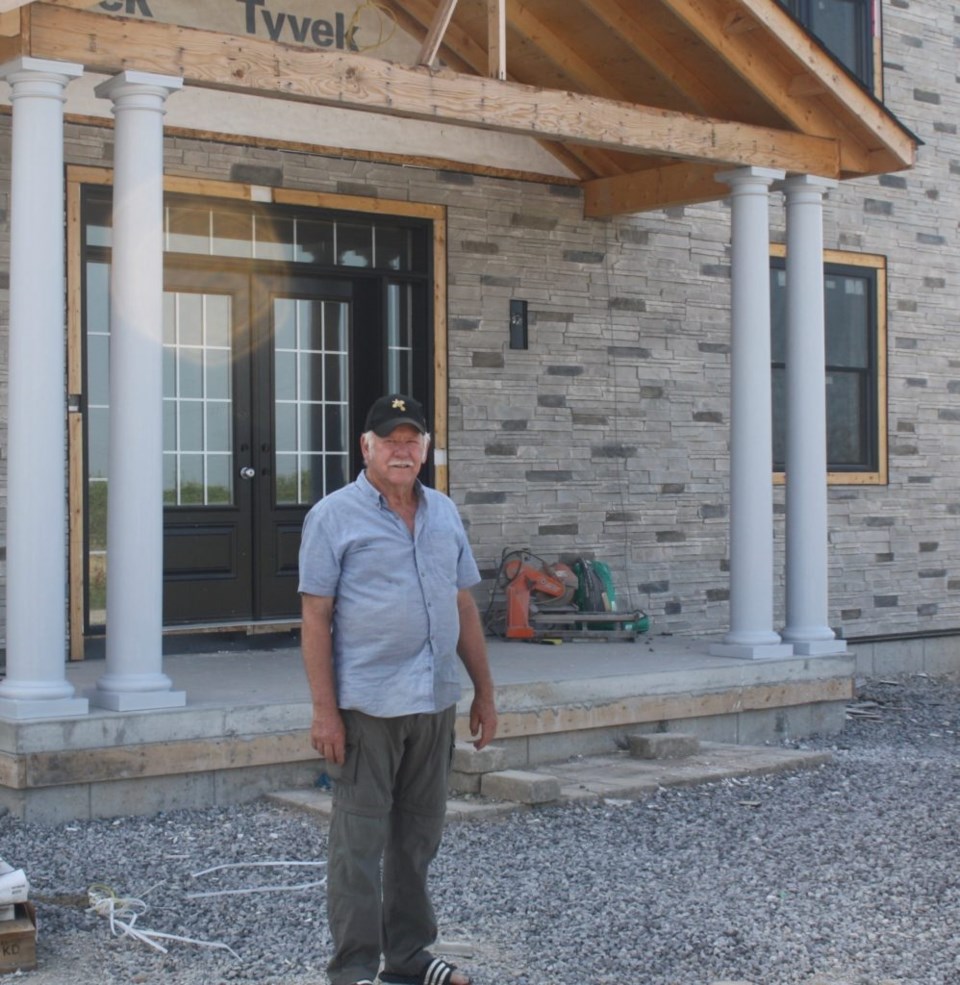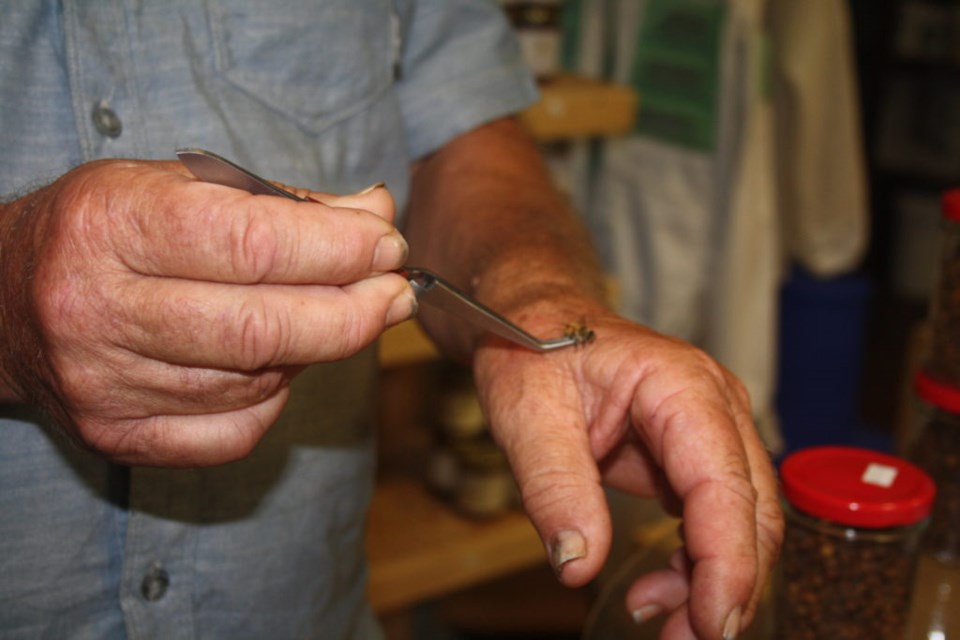
A local beekeeper is counting on a zoning amendment to allow him to operate an apitherapy centre, offering everything from retail bee products such as honey, royal jelly and bee bread, to alternative treatments for medical conditions.
Edward Unger of B-Y’s Honey (bee wise, he explains), is a beekeeper who offers beekeeping classes (or did, pre-pandemic), and rents bee hives for pollination.
In addition to bee hives, his farm includes floral and herbal crops necessary for producing a high-quality honey, which has long been accepted for having therapeutic value.
He also keeps sheep, chickens, guinea hens, and a parrot named Chico who greets those entering his barn, a corner of which is now used to stock bee products.
He has a building permit for his new structure, now well under construction, but he wants site-specific zoning to permit on-farm diversified uses, similar to farm wineries.
He already sells bee products from the barn on his 30-acre Concession 6 property, and offers some alternative treatments.
“In Europe, apitherapy is well-known and accepted,” says Unger, “but in Canada it’s new.”
He received training in Europe and is certified in Europe to perform alternative treatments, which are not regulated in Canada. He hopes they will be — there are efforts underway to have it regulated here so people can be trained here, he says.
Other treatments will wait until he has his new building finished. “It will be a cleaner setting, like a medical clinic. I won’t be working out of a barn.”
One of the treatments he now offers is bee sting therapy. He takes a bee in tweezers and squeezes it, then applies its stinger to the skin, releasing bee venom into the client. The bee dies after its venom is released.

He says it helps people with multiple sclerosis, arthritis and Lyme disease, alleviating pain and helping them move easier. He also believes it boosts immune systems weakened from chemotherapy and radiation.
He stings himself whenever he has joint pain, and he says the pain disappears.
There is no research in North America or scientific evidence of the therapeutic value of bee stings, but Unger says there is in Europe and South America. A quick look online shows there are anecdotal reports, but no evidence. There is no doubt, however that people have been using bee venom for medical conditions for centuries.
Unger says he has people who come regularly from Toronto and closer to home for regular treatments. He also sells a bee hut, that looks a little like a bird house. It comes filled with bees, and he shows his clients how to sting themselves, so they don’t have to make the trip to his barn for treatment.
Craig Rohe, a senior planner with Upper Canada Consultants in St. Catharines, was at the Town’s recent planning committee meeting to explain Unger’s request for site-specific zoning.
The new, two-storey building includes a foyer, and other rooms for housing bees and processing bee-related products, and well as an office and accommodation for farm help.
When asked about the alternative treatments, he described Unger as “one of the pioneers in some of these newer treatments for illnesses such as Lyme disease.”
His treatments are “very leading edge,” Rohe added, saying they would only be administered by appointment and with a trained practitioner onsite. Treatments would be by referral from a doctor, with a letter of consent.
Unger says before bee venom is used, his client would require a letter saying he or she is not allergic to bees.
With site-specific zoning and when his new building is complete, he plans to also offer beehive air therapy — inhaling air from a beehive — to treat respiratory illnesses, which he says requires a cleaner setting than his barn.
There has now been an open house and a public meeting on the zoning amendment, with the comments from both to be included in a staff report, which will include a recommendation to be presented to council.